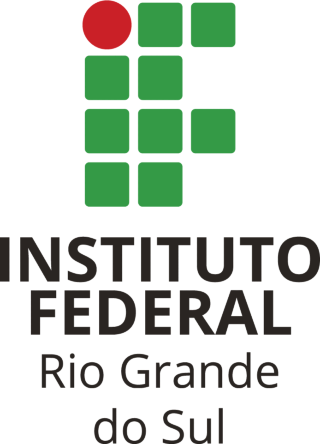Comunicação entre profissionais de saúde pré-natal e gestantes haitianas: proposta de recurso linguístico-terminológico acessível
| Title: | Comunicação entre profissionais de saúde pré-natal e gestantes haitianas: proposta de recurso linguístico-terminológico acessível |
| Author: | Schneider, Mônica Daiane |
| Abstract: |
Desde o terremoto de 2010 no Haiti, houve um aumento no número de imigrantes haitianos no Brasil. Porém, apesar das leis que permitem a entrada no país, os imigrantes e refugiados ainda encontram muitos problemas. Aspectos culturais e étnico-raciais perpetuam preconceitos. Além disso, a barreira linguística formada devido à diferença de idiomas dificulta a autonomia e inclusão desses imigrantes, que se encontram em situação de vulnerabilidade. O número de haitianos que residem na cidade de Harmonia-RS tem aumentado nos últimos anos e, conforme estabelecem residência, também constituem família. É significativo o número de gestantes de origem haitiana no município, as quais fazem o acompanhamento pré-natal integralmente na Unidade Básica de Saúde (UBS). Sendo assim, este trabalho foi delimitado e focado nesse público de gestantes/pacientes haitianas e sua comunicação com profissionais de saúde em atendimento pré-natal. Esse acompanhamento tão essencial não pode ser ignorado e realizado sem entendimento entre as partes. A complexidade do atendimento pré-natal, nesse caso, vai além da terminologia médica utilizada. A comunicação deve ser avaliada em sua totalidade, considerando, ainda, a diferença cultural e de idiomas entre as duas partes. Em vista dessa realidade, esta pesquisa tem o objetivo de propor e elaborar material de apoio linguístico-terminológico para viabilizar a comunicação entre profissionais da saúde e gestantes haitianas, a fim de garantir um atendimento pré-natal humanizado e com acessibilidade. A razão do desenvolvimento do trabalho se deu a partir da experiência profissional desta pesquisadora, que por atuar como técnica de enfermagem há três anos na referida UBS, convive diariamente com obstáculos relacionados à comunicação com imigrantes haitianos. Para isso, no campo da Linguística Aplicada, buscou-se aporte na Teoria Comunicativa da Terminologia (TCT) e na Acessibilidade Textual e Terminológica (ATT). Houve, ainda, pesquisa bibliográfica multidisciplinar no âmbito da Sociologia, Assistência Social, Geografia e História, de modo a melhor compreender os efeitos do movimento migratório mencionado e os sujeitos que dele fazem parte. Desse modo, foi realizada uma pesquisa-ação para investigar as demandas linguísticas e dificuldades de comunicação entre profissionais de saúde e gestantes haitianas. Assim, realizou-se entrevistas semiestruturadas com uma médica, uma enfermeira e duas haitianas que realizaram o pré-natal na Unidade. A partir de uma análise qualitativa dos dados obtidos, foram identificados os contextos comunicativos que geram dificuldade de compreensão entre pacientes e profissionais. Ademais, foi realizado o levantamento acerca de léxico e terminologias que se demonstraram fundamentais nos atendimentos de pré-natal. Baseando-se nesses insumos, foi identificada a necessidade de três tipos de materiais linguístico-terminológicos acessíveis: um glossário, um material diagnóstico e um material instrutivo. Posto isso, houve aqui a elaboração de um protótipo de glossário, nomeado Pré-N(Ayiti), concreto e acessível, sob as perspectivas linguística, terminológica e de design, que potencialmente sirva como ponte de comunicação entre gestantes/pacientes e profissionais. Conclui-se que a investigação do contexto comunicativo e terminológico, levando-se em consideração o perfil dos usuários pacientes e profissionais, irá contribuir para a acessibilidade bem como a inclusão social das haitianas podendo, ainda, ser empregado em outras UBSs. Since the 2010 earthquake in Haiti, there has been an increase in the number of Haitian immigrants in Brazil. However, despite the laws that allow entering this country, immigrants and refugees still face many problems. Cultural and ethno-racial aspects perpetuate prejudices. In addition, the language barrier formed due to language differences hinders the autonomy and inclusion of these immigrants, who find themselves in a situation of vulnerability. The number of Haitians living in the city of Harmonia-RS has increased in recent years and, as they establish residence, they also start families. There is a significant number of Haitian pregnant women in the town, who receive prenatal care in the Basic Health Unit (BHU). Thus, this study was delimited and focused on this audience of Haitian pregnant women/patients and their communication with health professionals in prenatal care. This essential follow-up can not be ignored and performed without understanding between the parties. The complexity of prenatal care, in this case, goes beyond the medical terminology used. Communication must be evaluated in its entirety, also considering the cultural and language differences between the two parties. From the point of view of this reality, this research aims to propose and develop linguistic-terminological support material to enable communication between health professionals and Haitian pregnant women, in order to ensure humanized prenatal care and accessibility. The reason to develop this work came from the professional experience of this researcher, who has been working as a nursing technician for three years in the BHU and deals daily with obstacles related to communication with Haitian immigrants. For this, in the field of Applied Linguistics, we sought support from the Communicative Theory of Terminology (CTT) and Textual and Terminological Accessibility (TTA). There was also multidisciplinar bibliographic research in the fields of Sociology, Social Assistance, Geography, and History, in order to better understand the effects of the mentioned migratory movement and the subjects that are part of it. Thus, action research was carried out to investigate the linguistic needs and communication difficulties between health professionals and Haitian pregnant women. Thus, semi-structured interviews were carried out with a doctor, a nurse, and two Haitian women who had prenatal care at the Unit. From a qualitative analysis of the data obtained, the communicative contexts that generate difficulty of understanding between patients and professionals were identified. Furthermore, a survey was carried out about the lexicon and terminology that proved to be fundamental in prenatal care. Based on these inputs, the need for three types of accessible linguistic-terminological materials was identified: a glossary, a diagnostic material, and an instructional material. This led to the development of a prototype glossary, named Pre-N(Ayiti), that is concrete and accessible from linguistic, terminological, and design perspectives, potentially serving as a communication bridge between pregnant women/patients and professionals. We conclude that the investigation of the communicative and terminological context, taking into account the profile of users, patients and professionals, will contribute to the accessibility and social inclusion of Haitian women, and can also be used in other UBSs. |
| URI: | https://dspace.ifrs.edu.br/xmlui/handle/123456789/1072 |
| Date: | 2023 |
Files in this item
| Files | Size | Format | View | Description |
|---|---|---|---|---|
| 1234567891072.pdf | 4.257Mb |
View/ |
Texto completo |



